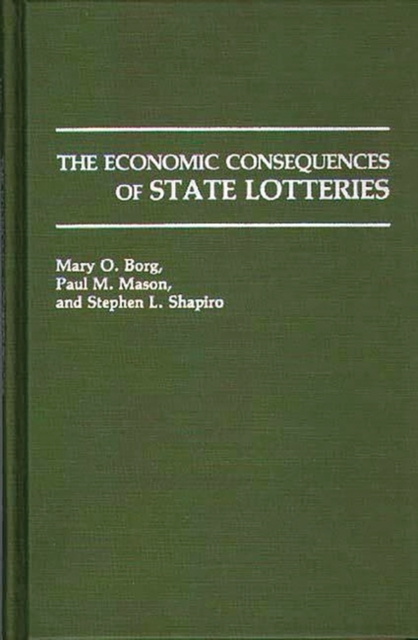
The Economic Consequences of State Lotteries Hardback
by Mary Borg, Paul Mason, Stephen L. Shapiro
Hardback
- Information
Description
Since the modern wave of lotteries began over twenty-five years ago in New Hampshire, state-operated lotteries have become an area of tremendous growth for public sector financing.
Gambling taxes of all kinds have been steadily increasing, and thirty-three states are now operating lotteries.
In this work, Mary Borg, Paul Mason, and Stephen Shapiro examine the economic impact and consequences of state lotteries, focusing specifically on the efficiency and equity of state government revenue and expenditure policy. The study begins with an overview of statistical information characterizing the nation's lotteries, and a review of the scholarly literature concerning lotteries and the economic evaluation of the lottery tax.
A pair of chapters then explore the equity and efficiency of lotteries.
The equity issues are addressed by considering the budgetary impact of the lottery in Illinois and Florida, while the efficiency issues focus on the six education-supporting lottery states, covering such topics as whether taxes are allocated to designated recipients and are efficiently administered.
Subsequent chapters detail the effect of lottery taxes on other sources of state tax revenue, and the issue of whether money spent on lottery tickets comes at the expense of necessities or alternative expenditures.
A final chapter offers policy prescriptions that could enhance efficiency and equity, as well as a discussion of whether lotteries should be discontinued.
This volume will be an important resource for scholars and policy makers in economics, state and local government, and public administration, and a valuable addition to both public and academic libraries.
Information
-
Available to Order - This title is available to order, with delivery expected within 2 weeks
- Format:Hardback
- Pages:160 pages
- Publisher:Bloomsbury Publishing Plc
- Publication Date:30/09/1991
- Category:
- ISBN:9780275935702
Information
-
Available to Order - This title is available to order, with delivery expected within 2 weeks
- Format:Hardback
- Pages:160 pages
- Publisher:Bloomsbury Publishing Plc
- Publication Date:30/09/1991
- Category:
- ISBN:9780275935702